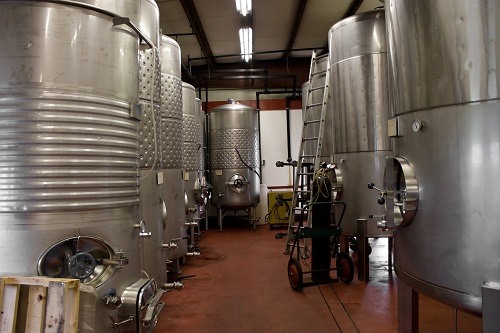Fermentation is a process wherein microbes are used to produce biological substances. It is useful in medicine in
1. In the manufacture of insulin and other hormones
2. In the production of vaccines
3. In the production of interferon
4. For the production of vitamin B12.
5. For the production of enzymes.
6. The production of Alcohol
The fermentation process is a very economical and easy method to produce biologically related substances in bulk.
The substance formed is also exact, unlike in synthesis, and also does not require massive filtration to separate the active content.
Also, the process can be automated to produce a continuous supply of the desired product.
Due to these benefits, fermentation is used to produce vital substances required as medicine.
How is Fermentation used in Medicine Today?
1. For the production of hormones like insulin
Insulin, as we know, is a hormone secreted by pancreatic cells.
People having diabetes, especially the Type-I nature, require daily administration of insulin. This insulin helps to control their blood sugar levels.
Previously the insulin for this purpose was obtained from animals like pigs and buffalos.
But, the insulin of these animals is not chemically the same as humans. So, it causes allergy and compatibility issues.
Further, due to rapid growth in the diabetic population, the demand for insulin had become several folds.
Hence, there was a need for a steady supply of insulin which is compatible with the human.
To manage this, the human gene coding for insulin was isolated and transferred into E.coli bacteria.
This transformed E-coli bacteria, when subjected to fermentation, it produces insulin. But the catch is the insulin produced is identical to human insulin.
Further, this bacteria has a small life cycle of only a few minutes to grow and multiply. So copious amounts of insulin are produced by fermentation.
The two amino acid strands of insulin are obtained separately, which are sealed to produce insulin hormone.
2. Vaccines
Vaccines are prophylactic substances used to prevent infections.
There are different types of vaccines like the
- Live
- dead and
- genetically engineered vaccines.
The first two types are produced by the use of live and dead microbes.
In contrast, the third type is produced by recombinant DNA technology (rDNA).
Using fermentation technology and rDNA, the genetically engineered vaccines like hepatitis-B are produced.
It involves the following steps like
a) Isolating the whole genome of the hepatitis-B virus.
b) Transfer of the gene containing plasmid into Saccharomyces yeast.
c) Growing the transformed yeast by fermentation to obtain a large scale vaccine.
3. Interferons
These are the substances that are used as antiviral drugs.

They are substances that prevent the virus from binding to the host cell and also growing inside it.
4. Production of vitamin B12
Vitamin B12 is a very complex and bulky molecule.
It would be complicated and time-consuming to synthesize it in a step by step manner by chemical processes.
However, it can be readily manufactured in a short time by fermentation technology.
Also, the product is pure without any contamination. It is widely used for the treatment of anemia.
5. Industrial enzymes
Fermentation produces enzymes needed for industrial applications on a large scale.
Examples are
A) Protease enzymes are used for medical treatments of inflammation. These proteases are produced from the fungus Aspergillus niger.
B) Enzyme amylase used to enhance digestion is also obtained by the same process.
6) Production of alcohol
One common usage of fermentation is in the production of alcohol. Alcohol is obtained by fermentation of molasses.
Here yeast is the microbe that is responsible for the conversion of sugars to ethyl alcohol. This method is the least expensive and is done for ages.
Even today, this is the only process to produce alcohol in large quantities. Check alcohol has many uses.